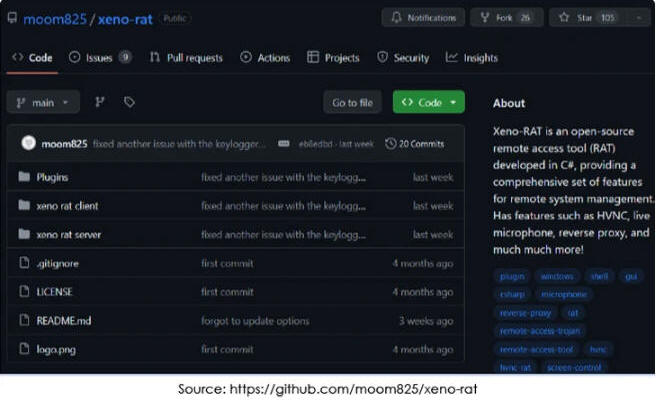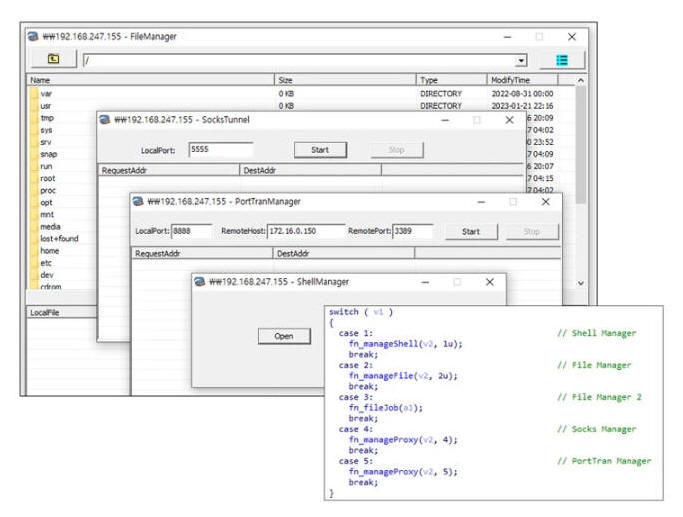28.2.24 Virus The Hacker News

Open-Source Xeno RAT Trojan Emerges as a Potent Threat on GitHub
28.2.24 Virus The Hacker News
An "intricately designed" remote access trojan (RAT) called Xeno RAT has been made available on GitHub, making it easily accessible to other actors at no extra cost.
Written in C# and compatible with Windows 10 and Windows 11 operating systems, the open-source RAT comes with a "comprehensive set of features for remote system management," according to its developer, who goes by the name moom825.
It includes a SOCKS5 reverse proxy and the ability to record real-time audio, as well as incorporate a hidden virtual network computing (hVNC) module along the lines of DarkVNC, which allows attackers to gain remote access to an infected computer.
"Xeno RAT is developed entirely from scratch, ensuring a unique and tailored approach to remote access tools," the developer states in the project description. Another notable aspect is that it has a builder that enables the creation of bespoke variants of the malware.
It's worth noting that moom825 is also the developer of another C#-based RAT called DiscordRAT 2.0, which has been distributed by threat actors within a malicious npm package named node-hide-console-windows, as disclosed by ReversingLabs in October 2023.
Cybersecurity firm Cyfirma, in a report published last week, said it observed Xeno RAT being disseminated via the Discord content delivery network (CDN), once again underscoring how a rise in affordable and freely available malware is driving an increase in campaigns utilizing RATs.

"The primary vector in the form of a shortcut file, disguised as a WhatsApp screenshot, acts as a downloader," the company said. "The downloader downloads the ZIP archive from Discord CDN, extracts, and executes the next stage payload."
The multi-stage sequence leverages a technique called DLL side-loading to launch a malicious DLL, while simultaneously taking steps to establish persistence and evade analysis and detection.
The development comes as the AhnLab Security Intelligence Center (ASEC) revealed the use of a Gh0st RAT variant called Nood RAT that's used in attacks targeting Linux systems, allowing adversaries to harvest sensitive information.

"Nood RAT is a backdoor malware that can receive commands from the C&C server to perform malicious activities such as downloading malicious files, stealing systems' internal files, and executing commands," ASEC said.
"Although simple in form, it is equipped with the encryption feature to avoid network packet detection and can receive commands from threat actors to carry out multiple malicious activities."